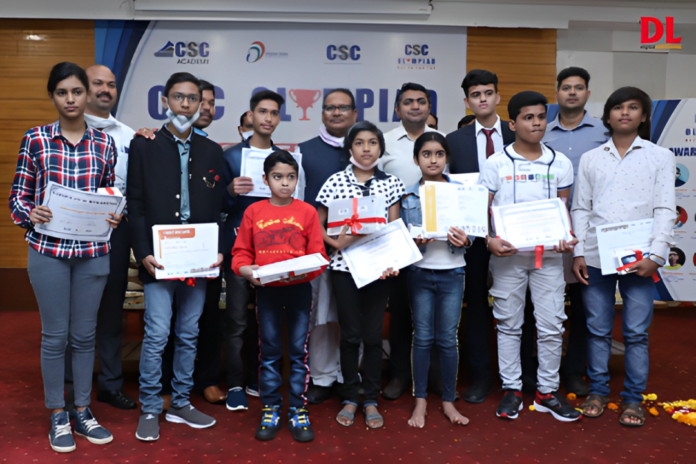
With an aim to bridge the gap between rural and urban India, the fifth edition of the CSC Olympiad (CSC Olympiad 5.0) has concluded with over 280,000 students from remote rural areas registering across 15 subjects in New Delhi. Amongst those registered, 113,576 students participated in practice exams and over 100,000 online exams were conducted with AI proctoring. Notably, 163 students have been selected for performance-based scholarships, as announced by the Common Service Centre e governance under the Ministry of Electronics and IT.
Idea behind Common Service Centre:
This plan was approved during the UPA-1 regime in September 2006 to cover all 6 lakhs census villages by one lakh such common service centres. According to the government’s estimates, one Common Service Centre would be equitably fair to serve six villages, making it at the ratio of 1:6. The government aims to propagate such schemes via the National Common Minimum Programme to introduce e-governance and CSCs help in it.
With an aim to ensure accessibility and inclusivity, the CSC Olympiad caters students from Class 3 to 12, conducted examinations in 10 regional languages, including Hindi, English, Tamil, Marathi, Gujarati, Odia, Telugu, Malayalam, and Bengali, ensuring accessibility and inclusivity. Beyond academic assessments, the Olympiad aims to foster leadership and communication skills and to elevate the role of Common Service Centers (CSCs) as crucial educational facilitators in rural communities.
Also Read: CBSE to Introduce Global Curriculum from 2026-27, Expanding International Offerings
How Olympiad started:
During the first lockdown of Covid-19 pandemic, digital connectivity enabled students to keep on their learning. While urban students felt no hurdles in this switching, rural students from and secondary classes faced significant hurdles in the switching. India doesn’t face such inertia ever again, Common Service Centres launched this Olympiad in May 2020 to bolster the digital skills of rural students.
With over 1,000 schools participating annually, the Olympiad provides an inclusive platform that is grade-agnostic, ensuring that students from diverse educational backgrounds can showcase their abilities. The event is further recognized for its credibility, as more than 15 District Magistrates and Education Officers actively participate in distributing awards to meritorious students.





















